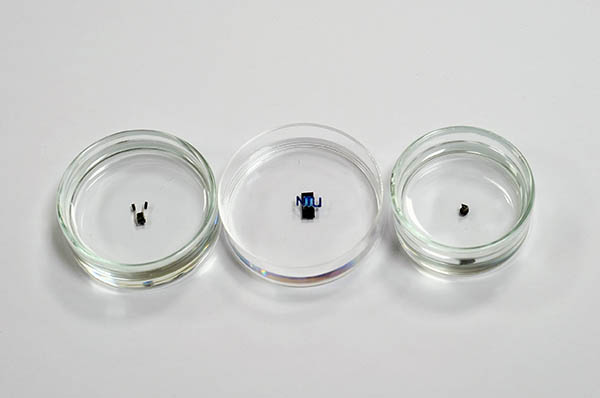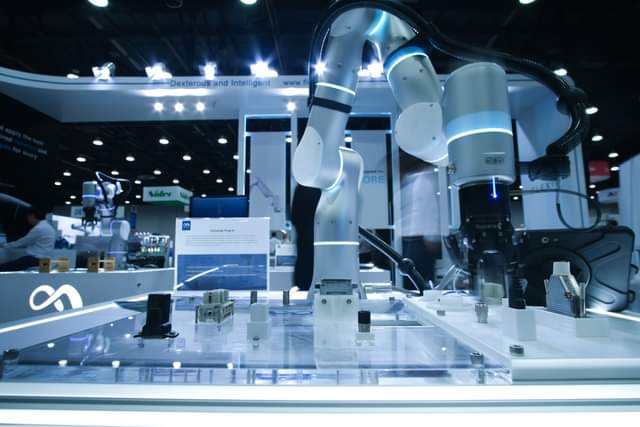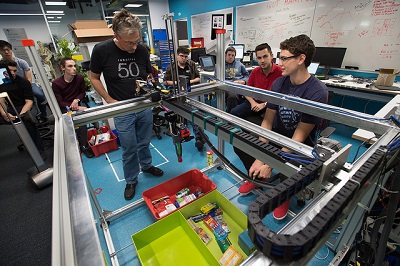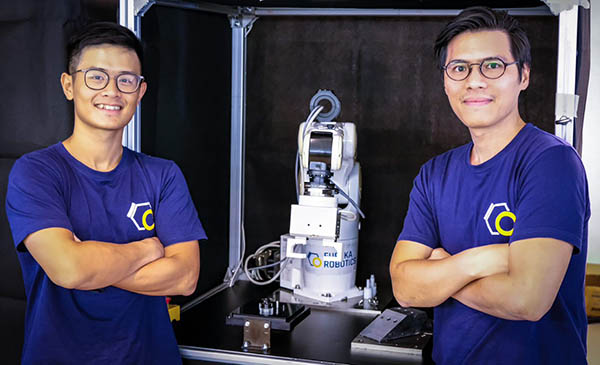Editors’ Picks





Found in Robotics News & Content, with a score of 22.10
Researchers at Nanyang Technological University in Singapore have developed millimeter-sized robots that can be controlled using magnetic fields to perform highly maneuverable and dexterous manipulations. This could enable applications in biomedicine and manufacturing, they said this week. The team of scientists created the miniature robots by embedding magnetic microparticles into biocompatible polymers—non-toxic materials that are harmless to humans. The robots are “programmed” to execute their desired functionalities when magnetic fields are applied. The robots improve on many existing small-scale robots by optimizing their ability to move in six degrees of freedom (DoF), said Nanyang Technological University (NTU). It defined six…

Found in Robotics News & Content, with a score of 20.43
…was founded in 2018 and was spun out of Nanyang Technology University Sinagpore. “This partnership with Handplus will enable more end-users to take advantage of the opportunities afforded by adaptive robotic technology,” stated Owen Wu, Flexiv’s senior sales manager for the Asia Pacific Region. “We have seen substantial growth over the past two years, and this strategic partnership with Handplus will enable us to expand our market presence without compromising the service we provide to our clients.” “Working together, Flexiv and Handplus will enable customized smart solutions to be created, which will reduce the effects of labor bottlenecks and decrease…

Found in Robotics News & Content, with a score of 16.30
…Championship Combined Task to win the overall Challenge with Nanyang Technological University of Singapore winning the Pick Task and MIT Princeton winning the Stow Task. The Australian Centre for Robotic Vision developed their own Cartesian robot “Cartman” for the challenge. Theirs was the only Cartesian robot at the event, and it is believed to be the least expensive contestant as well. Cartman can move along three axes at right angles to each other, like a gantry crane, and featured a rotating gripper that allowed the robot to pick up items using either suction or a simple two-finger grip. This year’s…

Found in Robotics News & Content, with a score of 15.13
…Alto and San Diego, CA; Vancouver, WA; Barcelona, Spain; and Singapore, where HP recently launched a groundbreaking collaboration with Nanyang Technological University (NTU) and the Singapore National Research Foundation (NRF) to drive 3D printing, artificial intelligence, machine learning, materials and applications, and cybersecurity innovations. Sources: Press materials received from the company and additional information gleaned from the company’s website.
Found in Robotics News & Content, with a score of 13.17
Scientists at Nanyang Technological University, Singapore (NTU Singapore), Massachusetts Institute of Technology (MIT), and Brown University have developed new approaches that improve the accuracy of a material testing technique by using machine learning. Nano-indentation—the process of poking a sample of a material with a sharp needle-like tip to see how the material responds by deforming—is important in many manufacturing applications, but its poor accuracy in obtaining certain key mechanical properties of a material, has prevented it from being used widely in industry. Using the standard nano-indentation process and feeding its experimentally measured data to a neural network machine learning system,…

Found in Robotics News & Content, with a score of 12.39
…and its Dynamis software spun out of research at Nanyang Technological University (NTU) Singapore. Eureka Robotics said its technology enables robots to manipulate small and fragile objects that are millimeters in size without damaging them. “Today, Dynamis has made it easy for anyone to program touch-sensitive tasks that are usually done by humans, such as assembly, fine manipulation, polishing, or sanding,” explained Pham Quang Cuong, an associate professor at NTU Singapore and co-founder of Eureka Robotics. “These tasks all share a common characteristic: the ability to maintain consistent contact with a surface.” “If our human hands are deprived of our…



